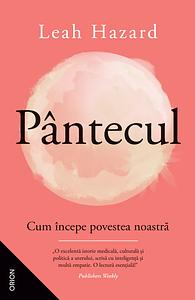You need to sign in or sign up before continuing.
Take a photo of a barcode or cover
informative
inspiring
reflective
medium-paced
I loved this book. It was such a lovely walk through of the many facets of the uterus. Make me want to think about being a midwife haha…
We can take one look at mainstream politics and can tell that women's health is already pretty much overlooked, and what is available or understood is generally dictated by men and ultra-conservative politics. It was exciting to find this book based on the premise that it would delve into more of the medical research and history of the female reproductive system. The author describes her fascination with the womb and women's health with genuine passion, and goes far to tell stories relating to the womb by doctors, scientists, midwives, etc. who are doing their best to get their research funded and respected. But, it was about the third or fourth chapter where I started to realize that the questions posed at the start of every chapter weren't necessarily answered - it was perhaps around this time that the author herself admitted that the chapter or book should come with a disclaimer that we just don't know the answer to what was being posed in the book. It started leaning more towards women's personal opinions and the social context for how they have those opinions than laying out historical or scientific research of what goes on in the women's body during the various stages of our lives. For what the book does offer or explores is eye-opening - but it also falls really short.
informative
inspiring
reflective
informative
reflective
medium-paced
emotional
informative
inspiring
reflective
medium-paced
informative
medium-paced
DNF. I didn't even make it through the first part, it wasn't what I expected. It aims to be "inclusive".
I LOVED reading this book. This was one of the first books after Hilarie Burton's "Grimoire Girl" that I actually wrote little details and notes in my notebook about what I found interesting in this book - so, future self, feel free to look back at what I found interesting!
I really enjoyed that this book examined "the womb" across its general lifespan rather than only focusing on the organ during reproduction. What captured me about this book was how the author often included up-and-coming research related to the organ/life stage that 1) I'd never heard before and was 2) fascinating sounding. For example, Hazard discusses research about looking at menstrual effluent to study biomarkers related to endometriosis and then also discusses a woman who receives a uterus transplant to give birth. This book is really comprehensive and gives context on various womb-related women's topics, such as endometriosis, menopause, anatomy of the uterus, period blood, matrescence, and history related to the uterus. I loved how Hazard included many quotes throughout the book from various figures, such as Emily Dickinson or other authors. I also found it fascinating that the end of the book considered ethics and the future of the uterus within transplant contexts or reprocide, etc.
This book was also an interesting connection to read after having read Sarah DiGregorio's "Early" this year, as well. Both of these books discuss CHOP's studies on biobags and the ethics of ectogenesis ("creation outside"), so I loved being able to make that connection between books and see my collection of books this year wind together!
I really enjoyed that this book examined "the womb" across its general lifespan rather than only focusing on the organ during reproduction. What captured me about this book was how the author often included up-and-coming research related to the organ/life stage that 1) I'd never heard before and was 2) fascinating sounding. For example, Hazard discusses research about looking at menstrual effluent to study biomarkers related to endometriosis and then also discusses a woman who receives a uterus transplant to give birth. This book is really comprehensive and gives context on various womb-related women's topics, such as endometriosis, menopause, anatomy of the uterus, period blood, matrescence, and history related to the uterus. I loved how Hazard included many quotes throughout the book from various figures, such as Emily Dickinson or other authors. I also found it fascinating that the end of the book considered ethics and the future of the uterus within transplant contexts or reprocide, etc.
This book was also an interesting connection to read after having read Sarah DiGregorio's "Early" this year, as well. Both of these books discuss CHOP's studies on biobags and the ethics of ectogenesis ("creation outside"), so I loved being able to make that connection between books and see my collection of books this year wind together!
dark
emotional
informative
inspiring
reflective
medium-paced
informative
medium-paced
Sesungguhnya, tiap bab buanyak banget yang dibahas. Sepertinya memang banyak hal yang ingin diceritakn penulis. Emang ada alurnya sih, awal bab bermula dari pengalaman penulis atau orang lain, lalu masuk ke satu permasalahan, kemudian lanjut ke permasalahan lain, sampai aku sebagai pembaca akan berkata, kok kita tiba-tiba ngomongin ini ya?
Salah satu yang aku pelajari dari buku ini, penulis berusaha mengover dua sisi dari hal-hal yang tampak bertentangan. Misalnya, tentang period optional penulis berusaha memahami perempuan yang memilih untuk minum pil pencegah menstruasi. Di sisi lain penulis menampilkan pendapat ahli soal ini. Begitu juga dengan womb wellness. Penulis memahami perempuan yang menghabiskan banyak uang untuk mendapatkan layanan womb wellness ini. Di sisi lain penulis menampilkan ahli yang berpendapat bahwa womb wellness ini buah dari sistem patriarki. Apapun pilihan perempuan sepanjang itu diputuskan dengan sadar, sebaiknya tidak perlu dikomentari.





